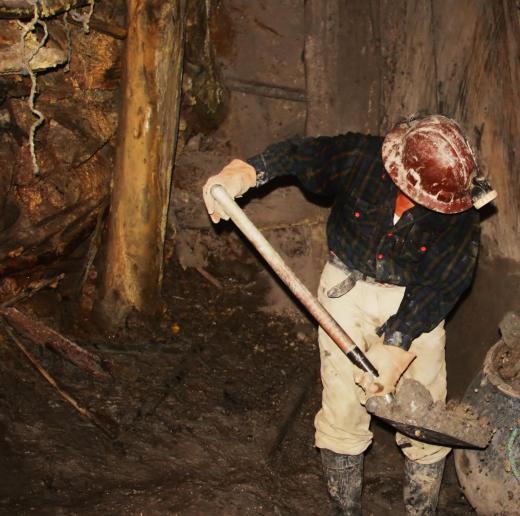A mining conveyor is a type of machine used to move ore or waste material generated by mining operations. These types of conveyors, while similar to smaller conveyor machines, are much larger and designed to carry very large loads. Some types of mining conveyor may carry hundreds of thousands of tons of raw ore per day over long distances, in some cases more than a mile (1.6 km). One mining conveyor is 4.7 miles (7.5 km) long. Mining conveyors are typically of the belt type, but other types are possible.
The mining industry relies on mining conveyor machinery to quickly and efficiently move huge amounts of ore and waste materials, often over long distances. These machines are much more efficient than traditional forms of transportation and can provide a continuous flow of ore to processing plants, refineries, or distribution stations. Mine conveyors are fairly easy to modify and move as necessary, adapting to changing conditions at the mine site.

Not all mining conveyor machines are the extremely long, overland types and may be much shorter. Many mines with on-site processing facilities use mining conveyors to move ore or waste materials from the mine to other facilities on, or adjacent to, the mine site. Many of these, while constructed to withstand extremely heavy use, may be much shorter than the huge overland conveyors.
High angle mining conveyor machines are a specialized type of mining conveyor that are designed to lift or lower materials at a steep angle. These types of conveyor may be used in open pit mines, for example, to lift material from the bottom of the mine to the rim. Sandwich conveyors use belts underneath and above the material to be moved, a configuration which allows for extreme angles and curves in the conveyor path.
While many conveyors have flat surfaces, a typical mining conveyor has a trough shaped cross section, with sides angled upward. This increases the amount of material the conveyor can hold per linear unit. Such conveyors have rollers directly under the belt as well as on the sides of the belt as well.
Some tunnel boring machines, such as the huge machines used to dig the tunnels under the English channel, have their own integral mining conveyor systems. These systems are designed to carry away the waste material created by the tunneling process. These conveyors begin at the very front of the machine and actually extend through the center of the machine itself, carrying the waste material away, sometimes for 2 miles (3.2 km) or more, where it is transferred to another conveyor or to other forms of transport for removal from the tunnel.
